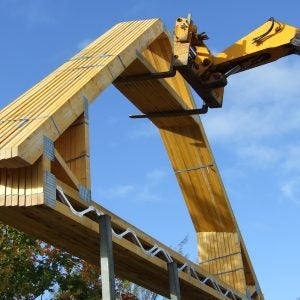The agency, which is responsible for managing Scotland’s national forests and land, says the UK’s current 80% import level of its annual timber requirement left the UK too vulnerable and wants to see the Scotland’s commercial timber sector stepping up to provide more timber.
FLS acknowledges the UK is “largely self-sufficient” in fencing products using homegrown timber but argues there is significant, unmet domestic demand for more structural timber and also pallet wood.
“Scottish-based timber manufacturers could potentially triple production to meet current and anticipated future demand and produce a greater share of the remaining 67% of the market which is currently imported, predominantly from Scandinavia, Latvia and Germany,” said Mick Bottomley, FLS head of marketing and sales.
“There is also significant potential to expand Scotland’s one fifth of forested land area so that we can be more self-reliant in our requirements for timber.”
FLS highlighted increasing timber prices, saying they have risen 30% in 2021 due to house builders and related industries struggling to secure supplies due to a huge increase in building activity, post lockdown.
With a long lead time in commercial forestry for producing homegrown timber – 25-40 years before trees can be harvested for various wood products – Mr Bottomley suggested the opportunity needed seizing now by planting more commercial forests “so that we are more self-sufficient in the future”.
FLS’ sustainable management of existing productive forests aims to bring 3 million tonnes of timber to market every year.
This year, FLS is planting 25 million trees and is further contributing to meeting the Scottish Government targets by acquiring land for new productive and native woodland creation.






